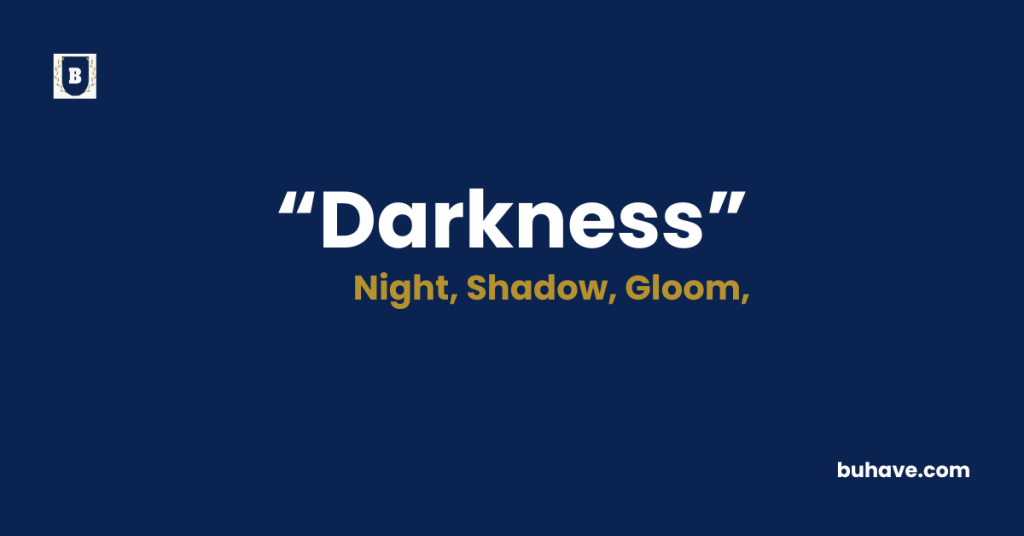The word ‘Darkness’ (Noun) refers to the absence of light, but it also carries symbolic meanings related to fear, ignorance, mystery, or sadness. In this guide, you’ll learn the full meaning, formal definition, historical roots, usage in sentences, and its most relevant synonyms and antonyms.
Darkness Explained in Depth
A complete and detailed guide to the word ‘Darkness’ including meaning, definition, examples, etymology, synonyms, and antonyms.
Meanings of Darkness
Darkness typically means the complete or partial absence of light. Metaphorically, it can also refer to emotional despair, moral evil, or a lack of understanding. The word is commonly used in both literal and figurative contexts, such as describing a dark room or expressing emotional turmoil.
Definition
Darkness is defined as the state or quality of being dark, either due to a lack of light or due to other negative conditions such as obscurity, secrecy, sadness, or evil. It may relate to physical conditions or abstract states of mind.
Etymology
The word “darkness” comes from the Old English term deorcnes, based on deorc meaning “dark.” The suffix -ness turns the adjective into a noun, denoting a state or condition. Over time, its meanings expanded beyond physical absence of light to include emotional and symbolic interpretations.
Example Sentences
- The darkness in the cave made it impossible to see even a foot ahead.
- She was haunted by a darkness that clouded her thoughts and emotions.
- In the darkness of night, the city lights shone like stars.
Darkness Synonyms
- Obscurity
- Gloom
- Shadow
- Murk
- Night
- Blackness
- Dimness
- Twilight
- Dusk
- Eclipse
Darkness Antonyms
- Light
- Brightness
- Radiance
- Daylight
- Illumination
- Clarity
- Sunlight
- Shine
- Glow
- Luminescence
FAQs about Darkness
Here are some frequently asked questions (FAQs) about the word “Darkness”
1. Is darkness always a negative term?
Not always. While often associated with fear or sadness, it can also represent mystery or peace, especially in poetic contexts.
2. What are symbolic uses of the word “darkness”?
It’s commonly used to symbolize evil, ignorance, secrecy, or inner turmoil in literature and philosophy.
3. Can darkness be used positively?
In some meditative or calming contexts, darkness may represent quiet, serenity, or the unknown in a non-threatening way.
4. What part of speech is “darkness”?
“Darkness” is a noun.
5. Is “darkness” the same as “dimness”?
Not exactly. Dimness refers to low light, while darkness suggests the complete or near-complete absence of it.

















